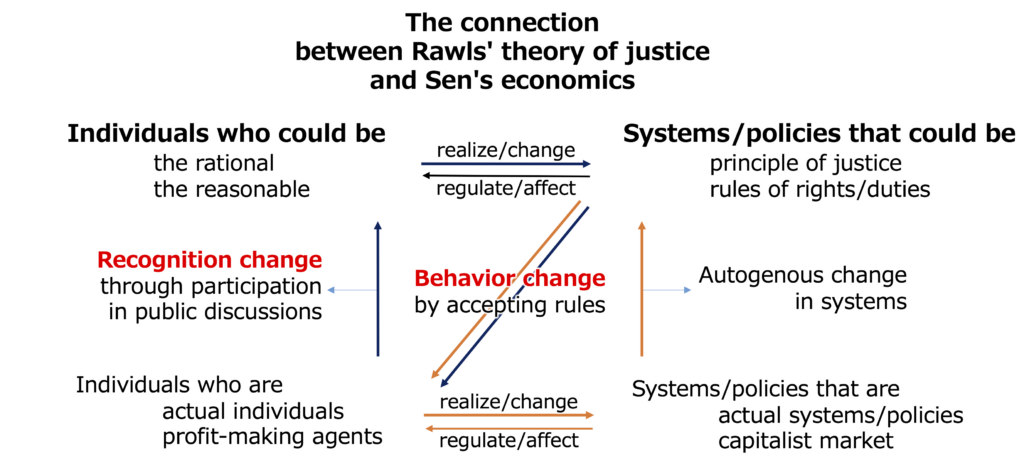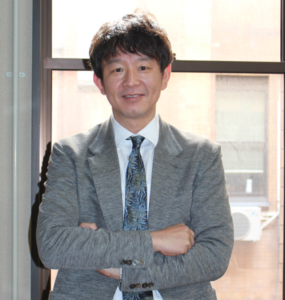R&D Group 1
R&D Plan 1-1
'Normative economics methods to narrow down well-being- and agency-related words'

Principal Investigator (PI)
Reiko Gotoh
Professor, Faculty of Economics, Teikyo University
No one took a broader and deeper view of the joy of going out than the poet Emily Dickinson. “Exultation is the going/Of an inland soul to sea,/Past the houses —past the headlands —/Into deep eternity —"
In fact, she spent half her life in the snowy lands without ever leaving her home. The aim of this R&D plan is to capture the individual's ‘going out and staying’ capability. An individual's capability consists of a bundle of well-being that he/she can choose, and the freedom of agency. How much the‘going out and staying’capability can a person have in their region, facility, and organization? Does he/she enjoy the capability to go out and come back home at any time he/she has reason to do with peace of mind? We would also like to try to develop a way of measuring “reciprocity-capability” between individuals and “city-capability” for the residence as a whole.

R&D Plan 1-2
'Computational social science methods to identify key axes of well-being and agency'

Principal Investigator (PI)
Hiroki Takikawa
Associate Professor, Graduate School of Humanities and Social Sciences, The University of Tokyo
The concepts of well-being and agency are concepts that have been elaborately theorised in normative economics, and at the same time are concepts that people use in their everyday life. Theoretically proposed concepts therefore need to be re-examined in the context of their usage in the real world. In order to understand people's ideas about well-being and agency in the real world, it is useful to analyse large texts using the methods of computational social science, in addition to surveys traditionally used in the social sciences.
The way words are used reflects people's attitudes as well as unconsciously held ideas and ways of thinking. These are deeply connected to people's practices and actions. Therefore, this project aims to capture the living ways of thinking of people in the real world, their ways of thinking and, ultimately, their actions and practices, by using large-scale text analysis of full-text data from the Library of Congress and SNS data. Vignette-type text experiments will also attempt to elucidate the causal mechanisms of what components of well-being and agency lead to people's moral evaluations and encourage them to act.

